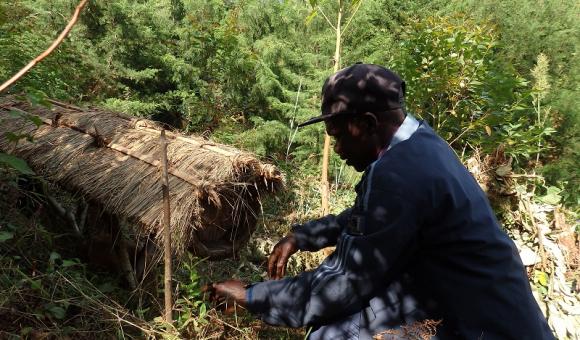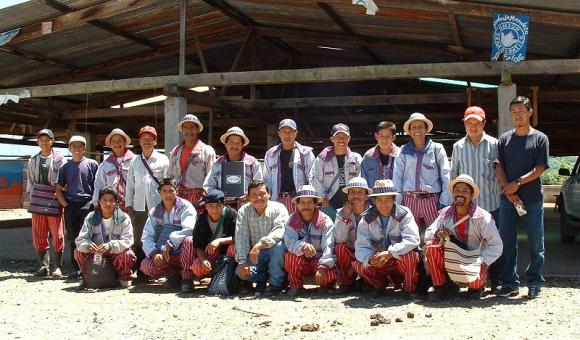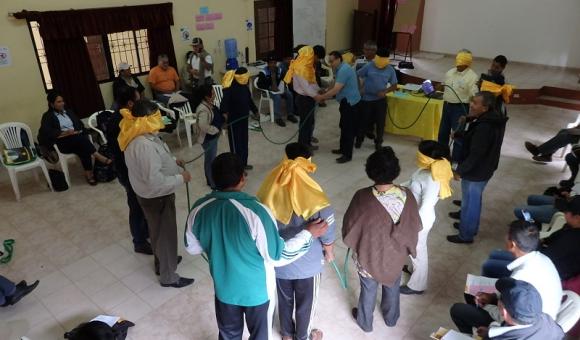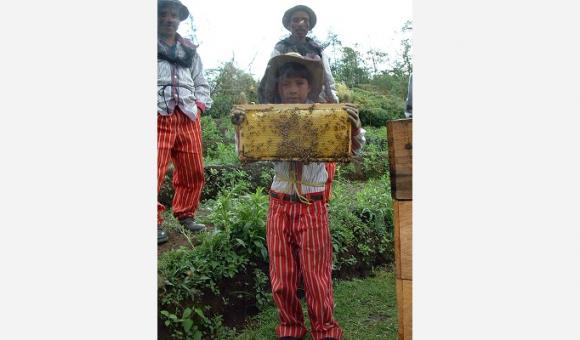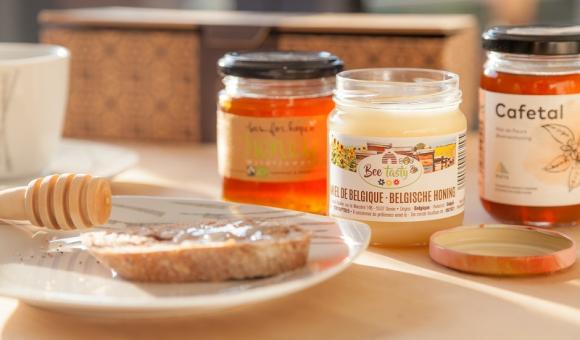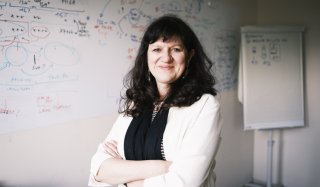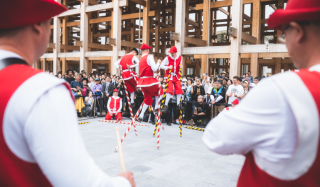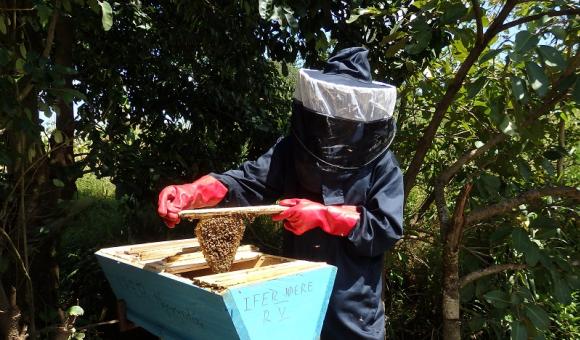
On 8 October, the Belgian non-profit organisation working within the development cooperation will celebrate its forty-fifth anniversary. So it’s the perfect occasion to highlight its activities with 7 questions to its coordinator, Benoît Olivier.
What is your mission at Miel Maya Honing?
The heart of our business is to support beekeepers in the South with projects which help them to improve their production and make a living from their work, while also caring for the bees. In addition, we are very focused on local environmental issues. By finding activities which generate income for farmers who live close to a natural reserve, they are dissuaded from continuing to poach or exploit the forest illegally.
The South covers a lot of ground. Which country are we actually referring to?
Currently, in Latin America, we are dealing with Chiapas (in Mexico). However, the development project is located in Bolivia. In Africa, we are working in Cameroon, and thanks to funding from Wallonia-Brussels International, we have been able to establish partnerships with beekeeping groups in Congo and Rwanda.
What kind of support do you provide?
In Bolivia, we act as a facilitator between professional beekeepers and beginners, in an effort to promote the exchange of knowledge. In Africa, on the other hand, the issue is more technical, as there are three types of hives: firstly, the traditional one made of plant materials (raffia, straw, etc.), then there is the modern one like the ones found here, but adapted to local conditions and to the type of bees that live there. And finally, there is the Kenyan hive (as a kind of intermediary on the road to modernisation) which is a good alternative to benefit production. What we do with our projects funded by WBI in Africa is to develop a research-activity concept. We set up the three types of hives in such a way that the beekeepers can experiment, understand the pros and cons and make their decision based on the appropriate knowledge.
Is there also a base in Belgium?
Yes, we put our heads together with CARI (as the non-profit Walloon and Brussels apiculture organisation), which is a reference when it comes to beekeeping in Belgium. We wish to make people aware of common issues in the North and the South. Again, the idea is to exchange information. We don’t say “become interested in Southern partners to help them”. African or South-American beekeepers can also teach the Belgians a lesson or two. It really works in both directions.
The situation today is delicate because bees are threatened with extinction...
They are environmental watchdogs, warning of us of climate disorders and pollution, and so on. It is important to make beekeepers in the South aware of this fact, as it will deter them from resorting to chemical fertilisers. It is important to know that the main source of nectar is found in the forests. By preserving the forest you also protect the bees. Everything is connected.
Where can we buy this honey?
Our role is not to promote export. Fair trade should not end up destroying the local market. Our priority is to sell locally.
But you have created a set of “Honeys of the World” available here…
Indeed. It contains three pots of honey: Cafetal from the coffee plantations in Mexico and which is truly divine, plus some honey from Argentina and some from Belgium. It’s the perfect gift.
By Nadia Salmi
This article is from the W+B Magazine n°149.
